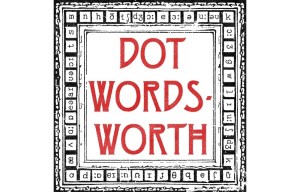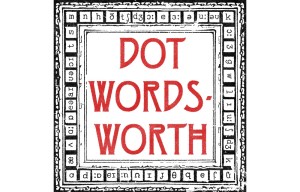“Lashings of ginger beer?” asked my husband when I mentioned backlash. He thought the phrase came from the children’s author Enid Blyton, though it occurred only in Five Go Mad in Dorset, a television parody of Blyton’s stories first shown in 1982 — forty years ago, for heaven’s sake.
Backlash, now in vogue, is often misused. The Guardian wrote about “the mass protests in the light of the George Floyd murder and the backlash to this movement.” That usage seems correct. But when it said that Chanel “faced a backlash online” for the contents of their Christmas advent calendar,” backlash was the wrong word. The metaphor backlash comes from mechanics. It is pretty much a dead metaphor, since some who use it think it has to do with lashing a back. As the Oxford English Dictionary puts it, a backlash is “the jarring reaction or striking back of a wheel in a piece of mechanism, when… sudden pressure is applied.”
The mechanism has to be going merrily when the sudden reaction sets in, perhaps mashing cogs and dislocating the operator’s arm. At the Great International Fisheries Exhibition of 1883 in South Kensington (attended by 2.6 million people, treated to displays of flamingos, pelicans, otters, seals and beavers), a maritime steering-gear was on show by which “the steersman is relieved from the danger of back-lash on the wheel.”
The metaphor applies just as well to a bandwagon (a term first used literally by Phineas T. Barnum in 1855), rolling like a juggernaut until a backlash stalls it. A backlash is not just criticism of an Advent calendar, even if widespread. As for lashings of ginger beer, the meaning is “floods,” a sense derived from the verb lash, which has meant “dash, rush, flash,” or (of tears and water) “pour, rush.” The local term on the Thames, lasher, for water at a weir, was made more widely known by Thomas Hughes and Matthew Arnold. In Three Men in a Boat (1889), Jerome K. Jerome notes that at the lasher at Sandford, “an obelisk marks the spot where two men have already been drowned, while bathing there; and the steps of the obelisk are generally used as a diving-board by young men now who wish to see if the place really is dangerous.”
This article was originally published in The Spectator’s March 2022 World edition.

























